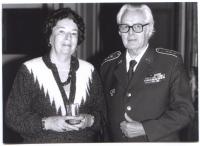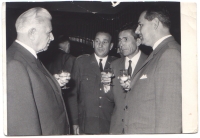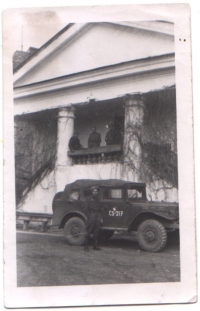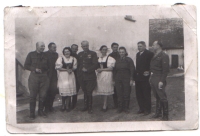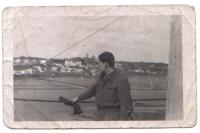„My wish is that there will be no wars anymore. And that´s what we were fighting for.“

Stáhnout obrázek
Mr. Jaroslav Procházka was born on December 17th 1923 in Prague. He spent his childhood in Polish town called Sniatyn near by Lvov town. After the Russian occupation of the Lvov’s territorial region (There used to be 16 regions in former Poland back then) he was sent to one of the forced labor camps (Gulag) and later was sentenced to 10 years in prison. After the German attack of the USSR in 1941 he has been moved to Buzuluk camp in Russia, where he underwent the general military training to become an operator-signalman. In 1943 he participated in the battle in Sokolov town (western Bohemia) and during the establishment of the 1st Czechoslovak army corps he served as an aide of the general Ludvik Svoboda. He also fought in the battle of the Dukla pass in fall of 1944. After the end of the war he started the studies at the electrical university. Unfortunately he couldn’t finish this school due to family reasons. After the February 1968 he has been chased by the former regime, because he refused to become the member of the Communist party. He was a member of the Czech Legionnaires Association since 1946 and during the Prague’s spring he was its local chairman in Pilsen town. But during the normalization period he has been withdrawn form all his positions. He became an active political citizen again after the year 1989. Jaroslav Procházka died on June 5th, 2005.
